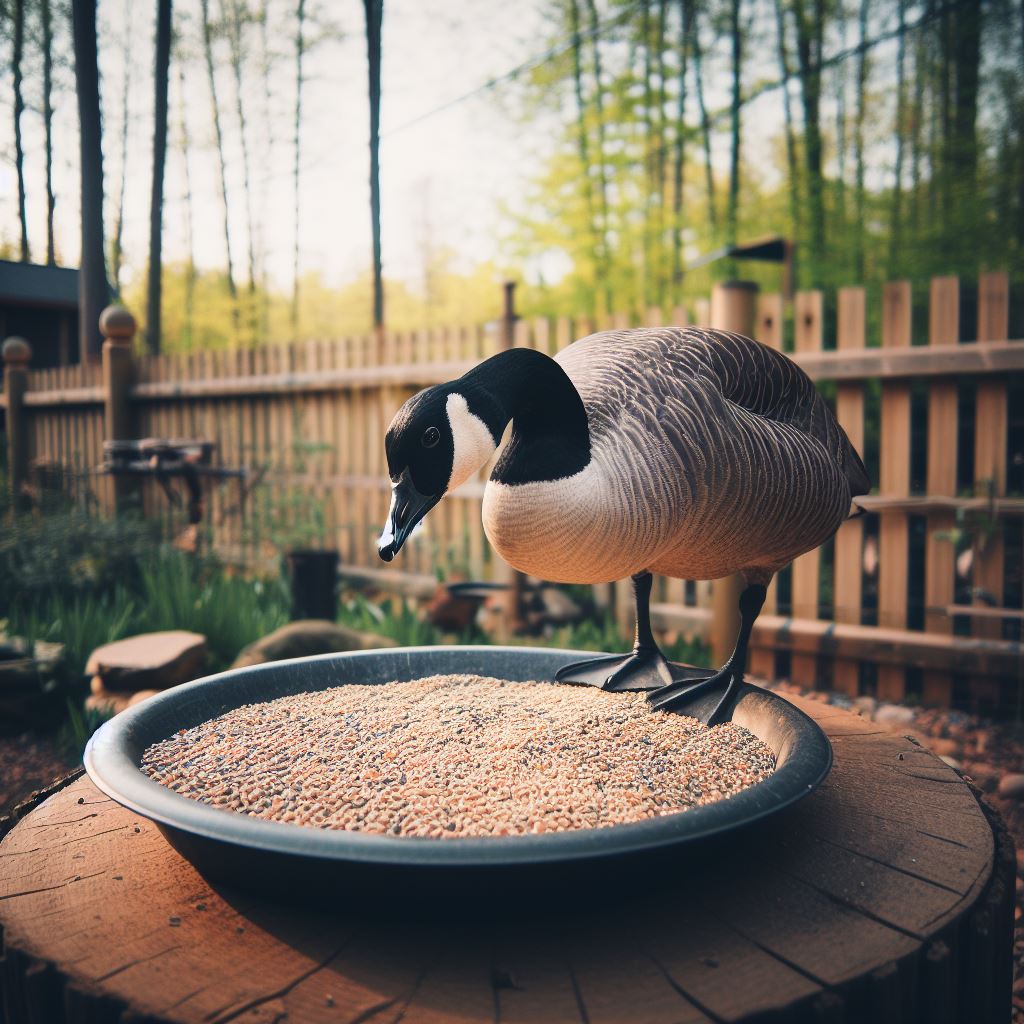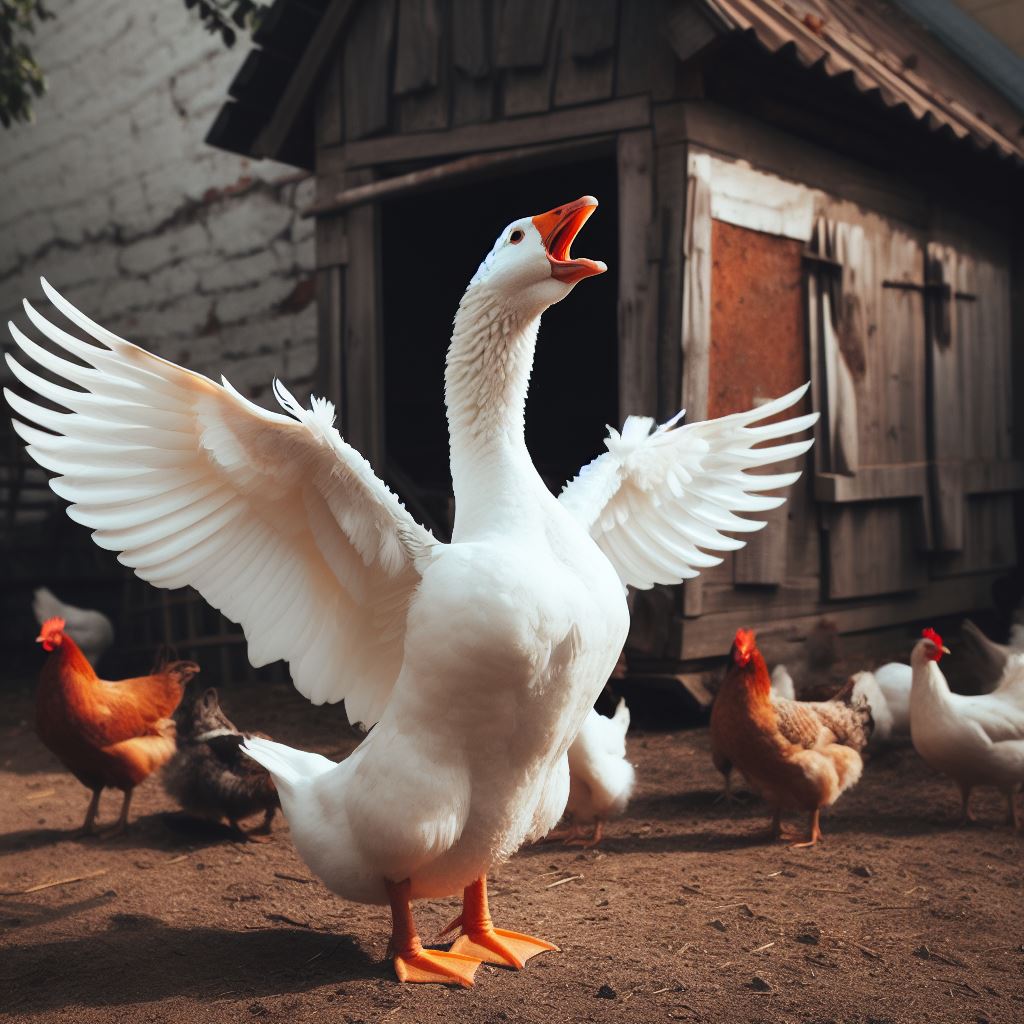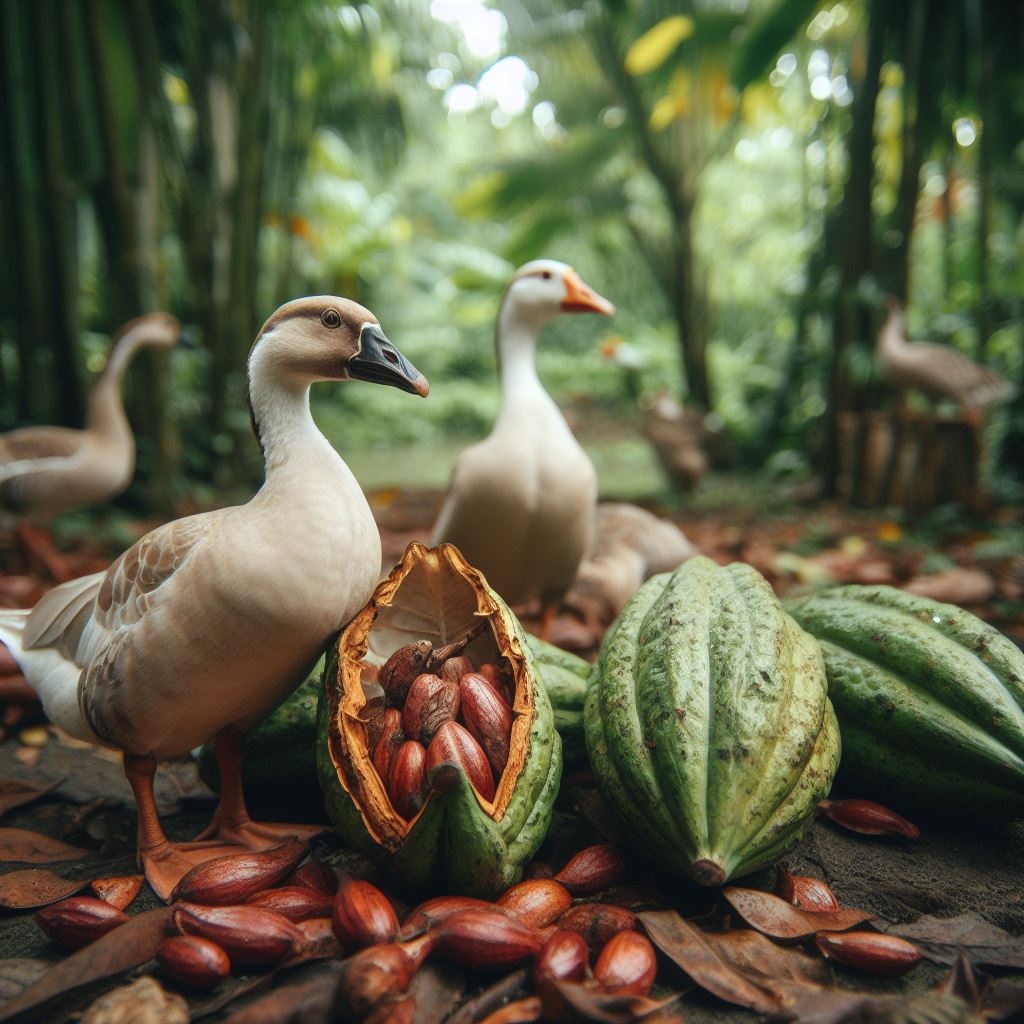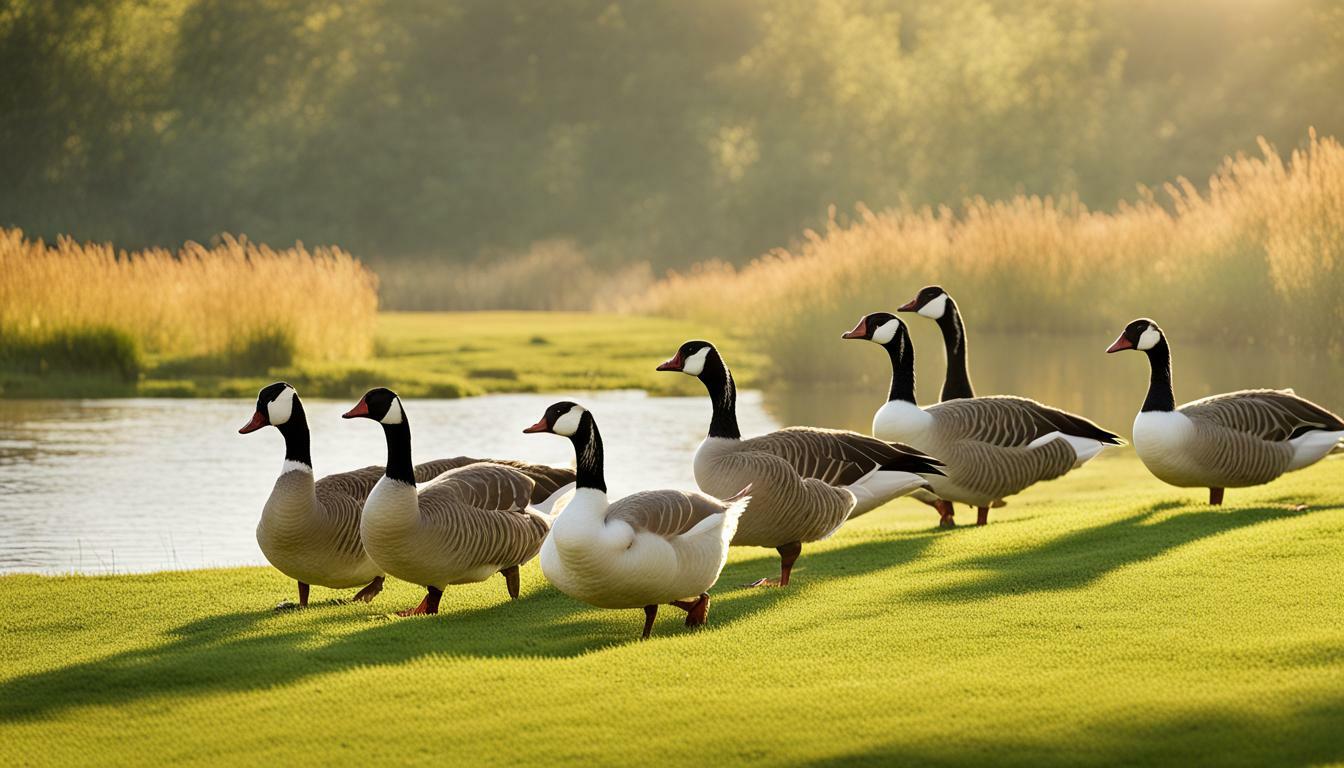Can Geese Eat Chicken Feed?

Table of content:
As an experienced poultry keeper, I do not recommend feeding chicken feed to geese as their main diet. While small amounts are okay as a supplemental treat.
Chicken feed is too high in protein and calcium over the long term for geese. This can lead to kidney issues. Geese thrive best on a balanced diet of greens, pellets, grazing, and some treats.
Geese’s natural diet consists of grazing on grasses, aquatic plants, seeds, fruits, and some insects. They have varied nutritional requirements based on factors like age, breed, and whether they are kept for meat, eggs, or pets.
Some key nutrients geese need include:
- Protein – for growth, muscle development, egg production, etc.
- Calcium – for bone health and eggshell strength
- Carbohydrates – for energy
- Fiber – for digestion
Free ranging geese find many nutrients they need naturally through foraging. But captive geese rely on their caretakers to provide a complete, balanced diet.
 Can Geese Eat Chicken Feed? In Fact
Can Geese Eat Chicken Feed? In Fact
So can geese eat chicken feed? The short answer is yes, geese can eat chicken feed in moderation.
Chicken feed provides many of the nutrients geese need like protein, carbohydrates, vitamins, and minerals. Most chicken feed comes in the form of pellets or crumbles consisting of grains like corn and soybean meal.
However, there are some important caveats to keep in mind:
- Chicken feed is formulated specifically to meet the nutritional needs of chickens. The protein, calcium, and other nutrient levels are tailored to chickens and may be excessive for geese.
- Chicken feed lacks the fiber content geese need for good digestion. Goose droppings may be loose or watery if fed chicken feed exclusively.
- The higher protein and calcium in chicken feed can contribute to kidney damage in geese over time.
- Chicken feed does not provide the greens, fruits, seeds, and aquatic plants that make up a natural goose diet.
Amount to Feed
Geese can consume up to 1 cup of chicken feed per adult goose daily. This is in addition to their main diet, not a complete substitution.
Never feed geese layer feed meant for egg laying hens, as the extremely high calcium content can cause kidney failure. Chick and poult starter feeds are safest.
Best Practices for Feeding Geese Chicken Feed
Chicken feed can supplement a goose’s diet in small amounts but should not replace their main diet. Here are some tips on feeding geese chicken feed:
- Limit to 1 cup or less per goose per day – Do not exceed this amount, even mixed with other feed.
- Soak pellets first – Dry pellets expand in the crop and gizzard and can impact digestion. Soak prior to feeding.
- Feed free choice greens/grasses – Ensure geese always have access to grass, leafy greens, etc to meet fiber needs.
- Provide a base diet of waterfowl feed – Choose a goose-specific pellet to provide balanced main nutrition.
- Supplement with fruits/veggies – Offer small amounts of treats like corn, peas, melon, squash.
- Ensure grit is available – Grit helps geese grind and digest fibrous foods and pellets.
- Provide plenty of fresh water – Support digestion and kidney function with unlimited clean water.
Signs of Excess Protein/Calcium
Monitor geese closely for these signs of too much protein or calcium from chicken feed:
- Loose, watery droppings
- Dehydration
- Reduced appetite
- Lethargy
- Increased drinking and urination
- Visibly enlarged kidneys
Stop feeding chicken feed immediately if any signs appear and consult an avian vet if they persist.
Healthy Food Alternatives for Geese
Chicken feed should not make up the bulk of a goose’s diet. Here are healthier alternatives to offer your gaggle:
Grazing Area
Allowing geese to graze freely provides the greens, fruits, seeds, and insects nature intended for them to eat. A grassy yard, pasture, or pond area are ideal grazing spots. Rotate areas to prevent overgrazing.
Pellets Made for Geese/Ducks
Feed a high quality complete waterfowl ration as the staple diet. Look for 16-18% minimum protein from quality sources. Provide 1/4 to 1/2 lb per adult goose daily depending on breed.
Leafy Greens
Chopped greens keep geese healthy and happy. Offer 2 cups per goose daily of any of the following:
- Kale
- Swiss chard
- Collard greens
- Mustard greens
- Spinach
- Lettuce (Romaine, red leaf)
Fruits/Veggies
Supplement with 1/2 to 1 cup per goose of:
- Corn (fresh/frozen)
- Peas (fresh/frozen)
- Squash
- Melons
- Berries
- Sprouts
Whole Grains
Sprinkle a handful of these to add carbohydrates:
- Oats
- Brown rice
- Barley
- Wheat berries
Grit
Provide free choice insoluble granite grit to help grind and digest fibrous foods.
Frequently Asked Questions About Geese Eating Chicken Feed
Here are answers to some common questions goose owners have about feeding chicken feed:
Can goslings eat chicken starter feed?
Yes, goslings can eat unmedicated chick starter feed until 6-8 weeks old. This provides the 20%+ protein they need for rapid growth. Slowly transition to an adult goose pellet after 8 weeks while still allowing grazing and greens.
Can I feed geese scratch grains?
Avoid feeding a scratch grain mix meant for chickens. The protein and calcium content is too high. Instead, offer a goose-specific grain/pellet mix.
Is it okay to feed geese layer pellets?
Never feed geese layer feed meant for chickens. The excess calcium causes kidney damage. Chick starter or turkey poult starter feeds are safer options.
Conclusion
In moderation, chicken feed can be a healthy supplemental treat for geese. But it should never outweigh greens, pellets, grazing, and other foods that make up a balanced goose diet.
Feed no more than 1 cup per adult goose daily. Monitor health closely and discontinue use if any symptoms of excess nutrient consumption appear.
Provide plenty of fresh water and insoluble granite grit at all times. Chicken feed can add variety but a diverse diet focused on a quality goose pellet and unlimited forage will keep your gaggle happily honking and healthy.
Welcome. I’m Adreena Shanum, the proud owner of this website, and I am incredibly passionate about animals, especially poultry. I founded adreenapets.com as a labor of love, stemming from my desire to share my knowledge and experiences with poultry enthusiasts worldwide.



